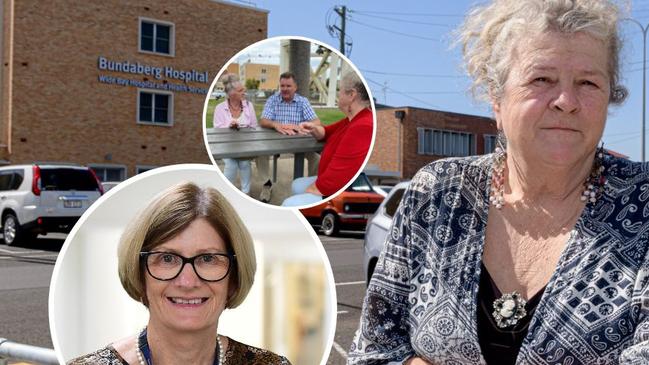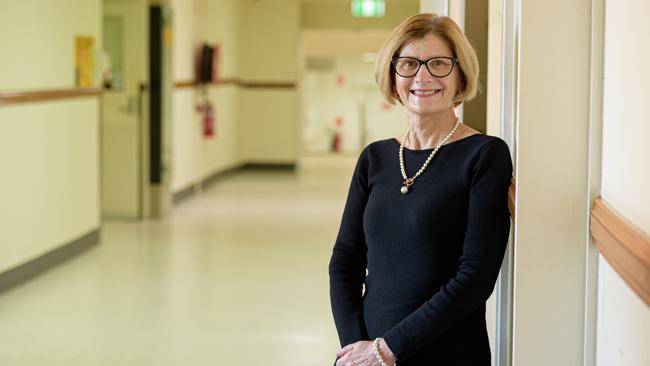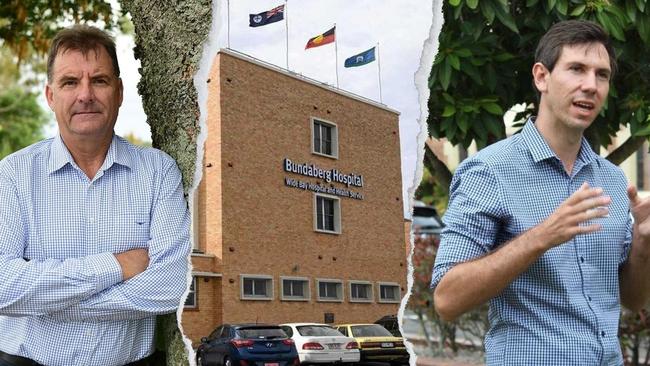Workplace culture and physical restraint at centre of Bundaberg hospital recommendations
An “action plan” is in place to make changes following an investigation into allegations of dangerous medication practices at Bundaberg Base Hospital. See the recommendations.

Bundaberg
Don't miss out on the headlines from Bundaberg. Followed categories will be added to My News.
Dozens of recommendations have been made after a review into allegations of intentional and unnecessary sedation of Bundaberg Base Hospital patients.
Queensland Health commissioned the Health Service Investigation and Clinical Review into Wide Bay Hospital and Health Service hospitals.
The investigation focused on the management of S8 and S4 medications, and questioned how daily operations led to misadministration of medication to patients.
S8 medications are medicines that have the potential to produce addiction such as alprazolam, morphine and oxycodone while s4 medications are medicines obtained from a pharmacist on prescription.
The report, which was not released in full, found the “workplace culture” had contributed to the claims, but stated “all current policies and procedures appeared to have been complied with”.
Investigations revealed many of the interviewed staff were unclear of “audit processes” when it came to S8 and S4 medication.
“It was unclear how ward staff are informed of errors so that improvements can be made,” the report said.
It also found workplace culture may have impacted the “reporting culture within wards under investigation”.
“There appeared to be a lack of formal reporting in relation to incomplete documentation surrounding S8/S4, for example omission of witness signatures,” the report said.
Queensland Health Director General Shaun Drummond said the recommendations focused on enhancing processes and procedures.
He said the hospital and health service accepted the recommendations and had provided an action plan.

The recommendations
The 39 recommendations made in the report summary were divided into five sections; workplace culture and reporting, pharmacological and physical restraint, education and training, communicating with patients and their care partners and medication management, police and monitoring.
Workplace culture and reporting
The recommendations included the need for action plans to improve workplace culture and formalise rostering and staff and exit interviews.
“The review team recommend … exit interviews for all staff on resignation to gain feedback on hospital strengths and help identify areas of improvement,” it said.
Recommendations surrounding pharmacological and physical restraints included improved education for staff when dealing with cognitive impaired patients and the harmonisation of multiple medication policies surrounding sedation.
Pharmacological and physical restraint
The report stated the “built environment” of the Bundaberg hospital was not equipped to handle cognitively impaired patients, and said staff members were forced to rely on sedation.
“Non-pharmacological options for management of cognitively impaired patients are exhausted at an earlier stage than would potentially be the case,” the report said.
It said all attempts should be made to “minimise the use of both physical and pharmacological restraints”.
The report also encouraged the limitation of multiple sedating agents being administered at the same time, and said informed consent should be prioritised.
Education and training
The report recommended an expansion of dementia and delirium education with a focus on non-drug management and de-escalation practices.
Medication and prescription training was also recommended for “all junior doctors involved in the care of older patients, especially those covering out of normal business hours”.
Consent and communication training was also recommended for “centrally acting medications”.
Communicating with patients and their care partners
The report outlines while there is “some discussion” on the administration of sedative medication with patients the process needs to be “formalised”.
“Information should include both the physical side effects of these medications, what should be considered expected and what should be considered excessive or unexpected,” the report said.
The report also called for improved communication between prescribers, ward staff and pharmacists and the “consent process” should be initiated by the prescriber.
Medication management, police and monitoring
Recommendations were made to improve the auditing and communication process surrounding S8 and S4 medication to “identify outliers for further investigation.”
The report called for S8 and S4 medication processes to be monitored at a higher level and said “missing medication processes should be followed.”

Politicians debate findings of report
Member for Burnett Steven Bennett said the report was incomplete.
He said a coroner's report on a patient death was still being completed.
“If the facts are there has been no serious harm, why does the report talk about the S8 and S4 medication being given to dementia patients?,” Mr Bennett said.
Mr Bennett has called for the full investigation to be released to the public.
Member for Bundaberg Tom Smith said the report clearly states no patients were harmed as a result of improper medication administration.
“The clinical excellence review has said there is absolutely no evidence whatsoever that there was any patient harm and no patient death through malpractice,” he said.
“They did say the standards are adequate and satisfactory, so the recommendations are about improving the already adequate standards.”




